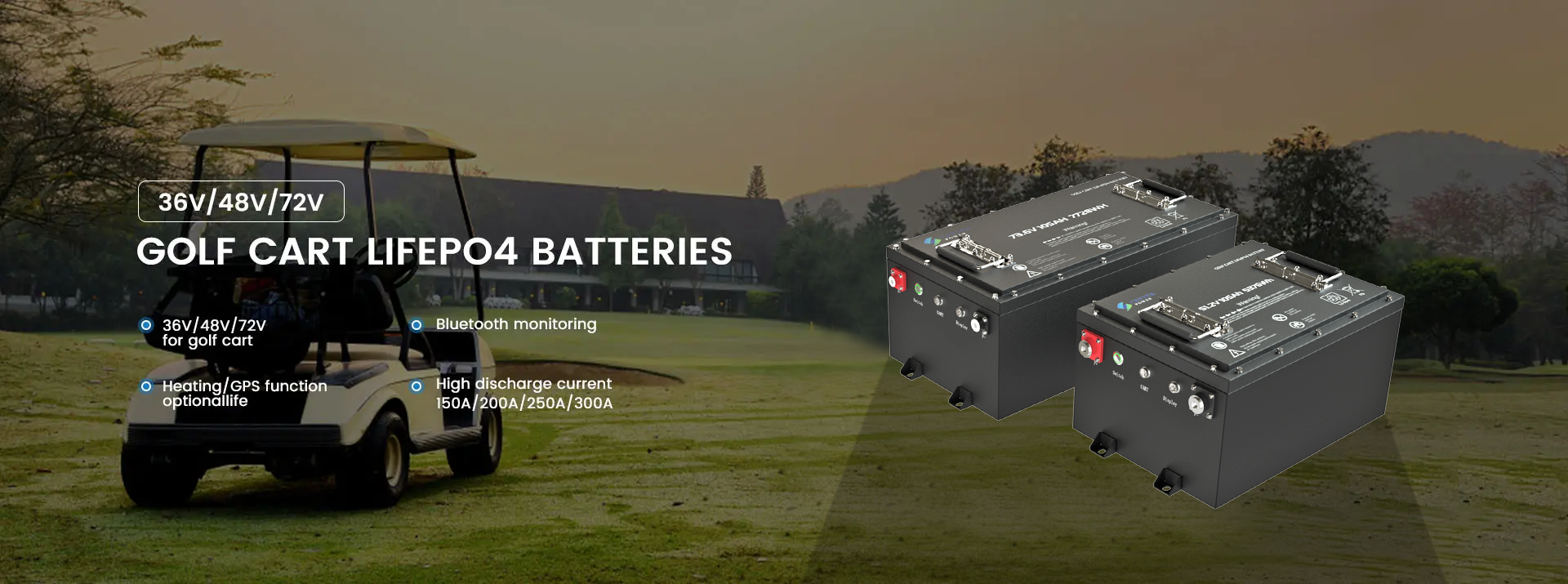The main difference between 48V and 51.2V golf cart batteries lies in their voltage, chemistry, and performance characteristics. Here's a breakdown of these differences:
1. Voltage and Energy Capacity:
48V Battery:
Common in traditional lead-acid or lithium-ion setups.
Slightly lower voltage, meaning less potential energy output compared to 51.2V systems.
51.2V Battery:
Typically used in LiFePO4 (Lithium Iron Phosphate) configurations.
Provides more consistent and stable voltage, which can result in slightly better performance in terms of range and power delivery.
2. Chemistry:
48V Batteries:
Lead-acid or older lithium-ion chemistries (such as NMC or LCO) are often used.
Lead-acid batteries are cheaper but heavier, have a shorter lifespan, and require more maintenance (water refilling, for instance).
51.2V Batteries:
Primarily LiFePO4, known for longer cycle life, higher safety, stability, and better energy density compared to traditional lead-acid or other lithium-ion types.
LiFePO4 is more efficient and can deliver consistent performance over a longer period.
3. Performance:
48V Systems:
Adequate for most golf carts, but may provide slightly lower peak performance and shorter driving range.
Might experience voltage drop under high load or during extended use, leading to reduced speed or power.
51.2V Systems:
Provides a slight boost in power and range due to the higher voltage, as well as more stable performance under load.
LiFePO4's ability to maintain voltage stability means better power efficiency, reduced losses, and less voltage sag.
4. Lifespan and Maintenance:
48V Lead-Acid Batteries:
Typically have a shorter lifespan (300-500 cycles) and require regular maintenance.
51.2V LiFePO4 Batteries:
Longer lifespan (2000-5000 cycles) with little to no maintenance required.
More eco-friendly since they don’t need to be replaced as often.
5. Weight and Size:
48V Lead-Acid:
Heavier and bulkier, which can reduce overall cart efficiency due to the extra weight.
51.2V LiFePO4:
Lighter and more compact, offering better weight distribution and improved performance in terms of acceleration and energy efficiency.
Post time: Oct-22-2024






